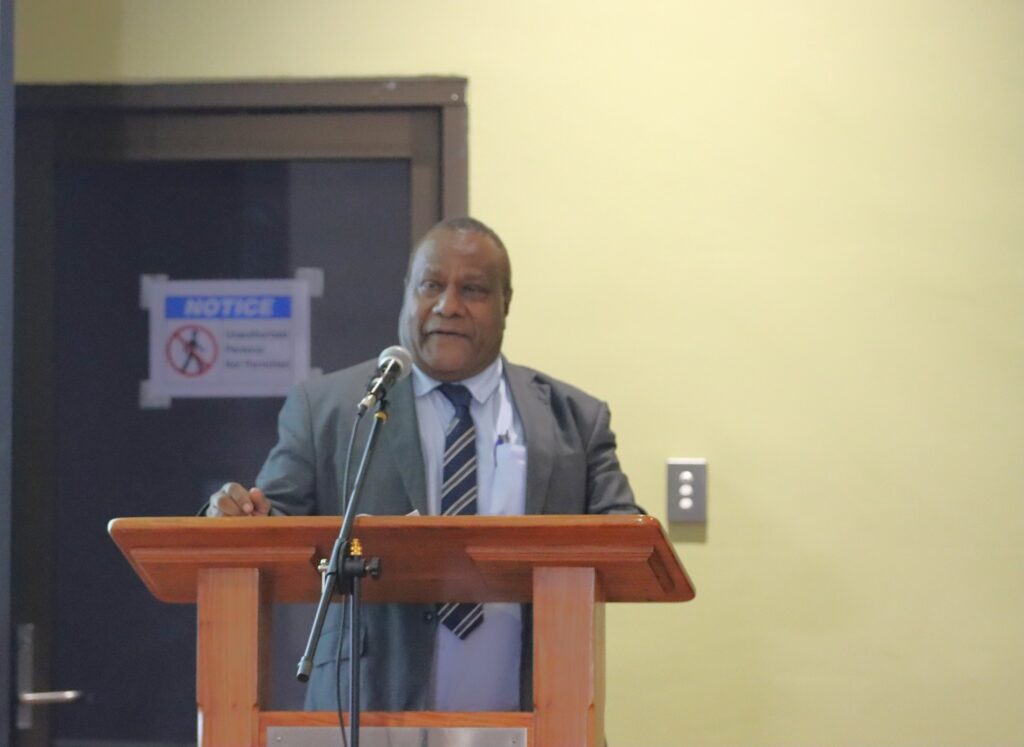Lae, Friday 11 April 2025 – Department of Agriculture Secretary Dr Sergie Bang has announced sweeping policy moves to remove import taxes on critical agricultural inputs, in a major step towards revitalising Papua New Guinea’s agriculture sector and supporting commercialisation.
Speaking at the conclusion of the National Agriculture Industry Public-Private Sector Partnership Conference in Lae—attended by Prime Minister Hon. James Marape, Agriculture Minister Hon. John Boito, and Oil Palm Minister Hon. Francis Maneke—Dr Bang confirmed that the Department had received government approval to develop agency-level policies to eliminate duties on imported agricultural items.
“We’ve now got the green light from the Minister and the Prime Minister to go ahead and prepare policies for the removal of import taxes on all agricultural inputs—fertilisers, chemicals, irrigation systems, and processing equipment,” he announced.
The proposed reforms, he said, are part of a broader drive to lower production costs for farmers and agribusinesses and encourage investment in processing and value-added production.

Local Tea Industry in Focus
Dr Bang specifically noted calls from WR Carpenters for tariffs on imported tea, signalling that the Department is now reviewing proposals to support the revival of the domestic tea industry.
“For those who enjoy English breakfast, green tea or black tea—it’s now time to put our heads together to revive our own industry,” he said.
National Resolutions Process Begins
The Secretary also initiated a participatory process to finalise resolutions from the five-day conference. He invited participants to assist in refining key proposals under the leadership of the Consultative Implementation and Monitoring Council (CIMC).
“It’s always good to turn up with solutions—not just problems. So let’s think in terms of strategies and practical options to move forward,” Dr Bang urged.
He emphasised that collaboration between government, the private sector, provinces and farmers is vital for implementation of outcomes. “It’s not just the government that must provide the answers,” he stressed, citing Mainland Holdings’ offer to self-supply solar power as a model of private initiative that could be supported by policy change.
Final Outcomes by May
Dr Bang confirmed that the finalised resolutions would be prepared and presented to the Minister and Prime Minister before a follow-up meeting in four to five weeks.
“Whether the solution comes from farmers, business or government—we must work together. Our aim is to commercialise agriculture and reduce barriers to growth,” he concluded.
###